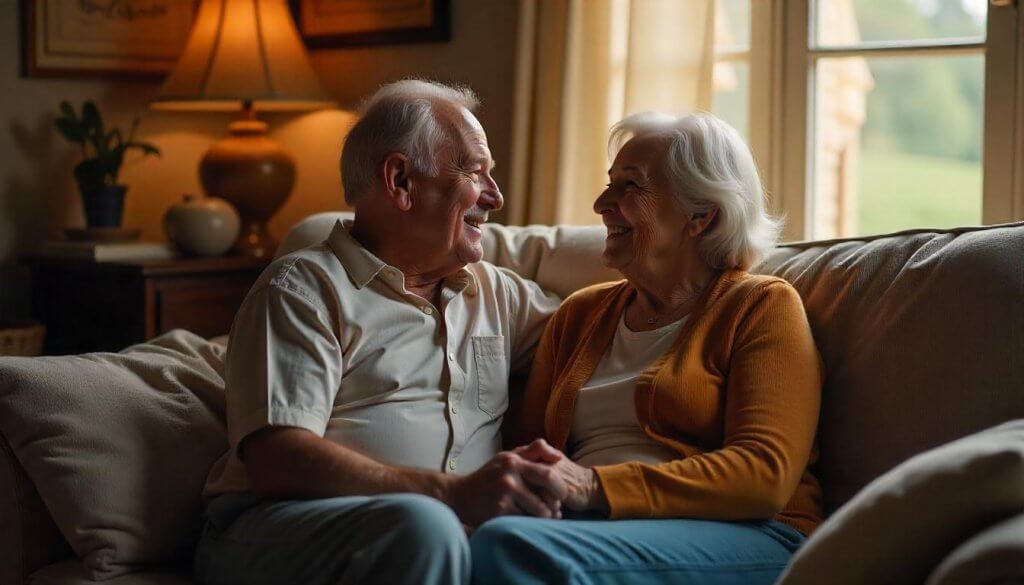인간관계는 아름다울 수 있지만 감정적 고통, 배신, 학대 등이 수반되면 오래도록 상처를 남길 수 있습니다. 관계 트라우마 은 많은 사람들에게 영향을 미치는 실제적이고 심각한 문제입니다. 이는 정서적 방치, 배신, 조작, 또는 심지어는 학대하는 친밀한 파트너.
이러한 트라우마는 단순히 관계를 바라보는 방식에만 영향을 미치는 것이 아니라 정신적, 정서적, 신체적 건강에도 영향을 미치는 경우가 많습니다. 트라우마에서 치유하려면 시간과 인내, 노력이 필요합니다.
이 문서에서는 다음 사항에 대해 설명합니다. 관계 트라우마 가 무엇인지, 어떻게 표시되는지, 어떤 단계를 거쳐서 빌드를 시작할 수 있는지 신뢰 를 다시 클릭합니다.
관계 트라우마란 무엇인가요?
관계 트라우마 연애 관계에서 지속적인 정서적 피해를 입었을 때 발생합니다. 이러한 트라우마는 정서적 학대, 바람, 가스라이팅, 유기, 지속적인 두려움에 시달리는 생활로 인해 발생할 수 있습니다.
항상 식별하기 쉬운 것은 아닙니다. 어떤 사람들은 상처가 자신의 행동이나 신념에 어떤 영향을 미치는지 깨닫지 못한 채 수년 동안 상처를 간직하고 살아갑니다.
이런 종류의 트라우마 는 특히 반복되는 실망, 거절, 학대 등의 상황에서 격렬한 감정적 사건에 의해 유발되는 경우가 많습니다.
관계 트라우마의 일반적인 징후
징후를 인식하는 것이 치유를 위한 첫걸음입니다. 다음은 몇 가지 일반적인 증상입니다. 관계 트라우마:
- 포기에 대한 끊임없는 두려움
- 사소한 논쟁에 대한 지나친 생각
- 사랑받을 자격이 없다고 느끼기
- 관계 형성 또는 유지의 어려움
- 과거 파트너의 회상 또는 감정적 유발 요인
- 갈등에 직면했을 때의 불안 또는 패닉
이러한 증상은 종종 다음과 같은 결과로 이어집니다. 신뢰의 어려움 그리고 감정적 분리.
관계 트라우마가 정신 건강에 미치는 영향
관계 트라우마 는 다양한 정신 건강 상태 불안, 우울증, 외상 후 스트레스 장애와 같은 정신적 질환을 겪을 수 있습니다.
뇌는 사랑을 위험과, 친밀감을 고통과, 취약성을 위험과 연관시키기 시작합니다. 이로 인해 건강한 관계에서도 마음을 열거나 안전하다고 느끼기 어렵습니다.
감정적 피해는 피로, 수면 부족, 두통과 같은 증상으로 신체적으로도 나타날 수 있습니다.
장기 트라우마 는 자존감, 갈등을 다루는 방법, 감정을 자유롭게 표현하는 능력에 영향을 미칠 수 있습니다.
관계 트라우마 치유에 있어 신뢰의 역할
신뢰 의 가장 큰 희생자 중 하나입니다. 관계 트라우마. 누군가에게 거짓말을 당하거나, 조종당하거나, 버림받은 경험이 있으면 다시는 다른 사람을 믿기 어려워집니다.
재구축 신뢰 는 나 자신으로부터 시작됩니다. 자신의 판단을 신뢰하고, 자신의 감정에 귀를 기울이고, 명확한 경계를 설정해야 합니다.
치유하면서 재건 신뢰 다른 사람들과 함께 있으면 덜 두렵게 느껴질 것입니다. 느리지만 회복의 필수적인 부분입니다.
관계 트라우마의 죄책감과 수치심
다음 대상과 거래하는 사람들 관계 트라우마 는 종종 다음과 같은 강렬한 감정을 동반합니다. 죄책감과 수치심. 그들은 일어난 일에 대해 자신을 비난하거나 해로운 관계를 유지하는 것에 대해 부끄러움을 느낄 수 있습니다.
이러한 감정은 심리적. 감정적 조작이나 반복되는 메시지에서 비롯될 수 있습니다. 학대하는 친밀한 파트너.
치유에는 트라우마가 자신의 잘못이 아님을 이해하고 자책의 짐을 내려놓는 것이 포함됩니다.
향후 관계에서의 트라우마 반응
과거의 트라우마는 새로운 관계에서 대응하는 방식에 영향을 미칠 수 있습니다. 다음과 같은 행동이 나타날 수 있습니다:
- 다른 사람이 너무 가까이 다가오면 밀어내기
- 지나치게 빨리 집착하는 경우
- 정서적 고통을 예방하기 위한 갈등 피하기
- 정상적인 관계 역학에 의해 촉발된 감정
다음은 누군가가 다음과 같이 처리하지 않은 경우의 일반적인 반응입니다. 관계 트라우마. 치유하지 않으면 오래된 패턴이 반복될 수 있습니다.
관계 트라우마에서 치유를 시작하는 방법
치유는 개인적인 여정입니다. 다음은 앞으로 나아가는 데 도움이 될 수 있는 단계입니다:
- 치료 받기: 트라우마에 대해 잘 알고 있는 치료사와 상담하면 지원과 안내를 받을 수 있습니다.
- 건강한 경계 설정: 거절하는 법을 배우고 감정적 공간을 보호하세요.
- 자존감 회복: 여러분은 존중과 사랑을 받을 자격이 있음을 스스로에게 상기하세요.
- 마음 챙김 연습하기: 현재에 집중하고 생각과 촉발 요인에 주의를 기울이세요.
- 지원 시스템 활용: 친구, 가족 또는 지원 그룹과 대화하세요.
치유로 가는 길은 멀지만 한 걸음 한 걸음 나아갈 때마다 진전이 있습니다.
트라우마 후에도 다시 사랑할 수 있을까요?
네, 치유는 가능하며 사랑도 마찬가지입니다. After 관계 트라우마사람들은 종종 관계에서 다시는 안전하다고 느끼지 못할까 봐 걱정합니다.
하지만 신뢰 가 재건되고 트라우마가 치유되면 새로운 사랑을 위한 정서적 공간이 열립니다. 천천히 가고, 친절하고 인내심을 가진 파트너를 선택하고, 스스로 성장할 수 있도록 허용하는 것이 중요합니다.
트라우마 이후의 사랑은 다르게 보일 수도 있지만, 더 자각적이고 연민을 느끼며 정직할 수도 있습니다.
심리적 유발 요인에 대처하기
심리 트리거는 과거의 트라우마를 떠올리게 하는 강렬한 감정적 반응입니다. 이는 공포, 두려움 또는 슬픔을 유발하는 특정 단어, 행동 또는 상황일 수 있습니다.
이러한 트리거를 인식하는 방법을 배우는 것이 중요합니다. 일기를 쓰거나 치료사와 상담하거나 접지 기술을 사용하여 관리할 수 있습니다.
응답을 더 많이 이해할수록 응답을 더 잘 제어할 수 있습니다.
죄책감 내려놓기 및 자기 신뢰 회복하기
많은 생존자들이 관계 트라우마 깊은 자기 신뢰의 상실을 느낍니다. 자신의 판단력을 의심하거나 위험 신호를 놓친 것에 대해 죄책감을 느낄 수 있습니다.
치유는 스스로에게 은혜를 베푸는 것에서 시작됩니다. 자신이 아는 한 최선을 다했음을 스스로에게 상기하세요.
놓아주세요 죄책감. 놓아주세요 부끄러움. 기반 재구축 시작 신뢰 스스로에게.
이러한 내면의 치유는 미래의 건강한 관계를 위한 발판이 됩니다.
결론
관계 트라우마 는 감정, 자존감 및 능력에 깊은 영향을 미칠 수 있습니다. 신뢰. 이는 종종 불안, 금단증상 또는 같은 통증이 반복되는 패턴으로 이어집니다.
하지만 치유는 가능합니다. 자기 인식, 전문가의 지원, 인내심을 가지고 고통의 악순환에서 벗어날 수 있습니다.
당신은 트라우마가 아닙니다. 여러분은 사랑, 안전, 평화를 누릴 자격이 있습니다. 치유를 위한 첫걸음을 내딛는 것은 한 걸음 한 걸음 내딛을 때마다 자신의 힘을 되찾는 것이니까요.













